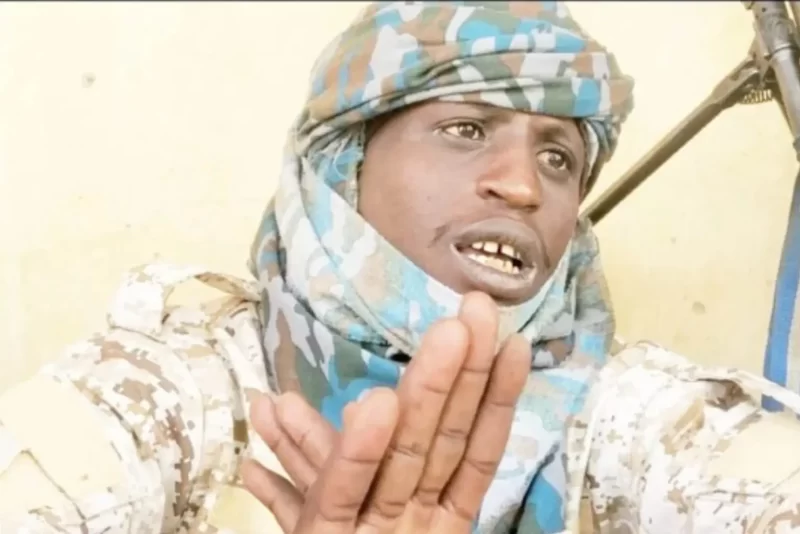Breaking News
Bandit Leader Turji Lays Down Arms, Releases 32 Hostages After Mediation – Cleric Reveals
Sheikh Musa Yusuf Assadus Sunnah, one of the mediating clerics, disclosed during a Friday sermon that a delegation of Islamic scholars conducted high-risk negotiations with Turji’s group deep in Fakai forest, Shinkafi LGA. The breakthrough comes after months of escalating violence in Nigeria’s northwest region.

A major development has emerged in Zamfara State’s peace efforts as infamous bandit kingpin Bello Turji has allegedly surrendered weapons and freed 32 captives following mediation by Islamic religious leaders.
Sheikh Musa Yusuf Assadus Sunnah, one of the mediating clerics, disclosed during a Friday sermon that a delegation of Islamic scholars conducted high-risk negotiations with Turji’s group deep in Fakai forest, Shinkafi LGA. The breakthrough comes after months of escalating violence in Nigeria’s northwest region.
” it was not an easy trip, we had to cross a river without a canoe, and travelled a long distance deep inside the forest on bikes before we reached Turji’s enclave,” he said.
According to Sheikh Yusuf, the meetings were held on three separate occasions in July and were facilitated at the request of the residents of Shinkafi, who have been under the siege of armed bandits for years.
“We met Bello Turji, Dan Bakkolo, Black and Kanawa, and Malam Ila. Contrary to speculations, Dan Bakkolo is alive and was present during the meetings,” the cleric said.
He noted that the dialogue was part of a grassroots-led peace initiative aimed at restoring stability in the region. The bandits reportedly agreed to key proposals during the talks, including the symbolic surrender of arms and the release of hostages.
“In three phases, they surrendered some arms to demonstrate their commitment to the peace process. They also agreed to allow farmers from Shinkafi access their farmlands across the river leading to Turji’s enclave,” Sheikh Yusuf said.
He disclosed that 32 kidnapped victims — mostly women and children , were freed as part of the initial peace gestures. Some of the victims had spent over four months in captivity, with reports of women giving birth in the bush and others suffering from ailments such as snake bites.
Videos of the released captives and the difficult terrain navigated by the clerics to reach Turji’s camp were shown to worshippers by Sheikh Yusuf during his sermon in a Kaduna mosque.
He said the peace accord also stipulates that Fulani residents be allowed to return to town without fear of being profiled or harmed by vigilantes.
Since the dialogue, the Shinkafi axis has witnessed relative peace, with no reported cases of kidnapping or killings, and residents have resumed farming activities in previously inaccessible areas.
However, the cleric was cautious about calling for a complete disarmament of Turji’s group at this stage, citing fears of possible attacks from rival factions opposed to the peace process.
“We are engaging Turji gradually towards total peace. It would be unwise to ask him to surrender all his weapons now, as that could expose him to other armed groups who may not be part of the peace talks,” he explained.
Sheikh Yusuf also advised fellow clerics to refrain from engaging in public verbal attacks against Turji, warning that such actions could derail the fragile peace process.
He commended President Bola Ahmed Tinubu, National Security Adviser Nuhu Ribadu, Governor Dauda Lawal of Zamfara State, and Senator Shehu Buba for backing non-kinetic approaches in tackling insecurity in the region.
Reacting to the development, Dr Suleiman Shuaibu, an indigene of Shinkafi, confirmed the release of the captives and expressed optimism about the peace process.
“It is true. Turji has released about 32 hostages and has shown willingness to surrender his arms. The people of Shinkafi are happy because the government has not done enough. There is jubilation everywhere in the town,” he told Vanguard.
While there has been no official statement from government authorities, a source familiar with the matter who spoke on condition of anonymity said the development could be part of a discreet peace effort between the people and the armed groups operating in the region.
Zamfara State has been one of the epicentres of banditry in Nigeria, with thousands killed, kidnapped, and displaced over the years. The recent move by Turji , one of the most feared bandit leaders , could signal a turning point if sustained through broader engagements and government backing.









